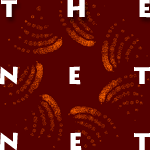IT'S IMPOSSIBLE for any old net hand not to agree with some of Clifford
Stoll's points in Silicon Snake
Oil, newly out in paperback. To sum it up: Stoll's been on the net a
long time and he's peeved with the recent hype. He makes some home truths
about unwise use of computerization and networking and neatly debunks some
of the areas of maximum hype inflation. So why am I uncomfortable about
endorsing his overall view?
Stoll's frustration with the contradictions of the computer world becomes a
palpable thing: systems which are supposed to make it faster and more
efficient to work bog people down in their own intricacies; networks which
are meant to encourage communication generate flaming and promote slacking
off. His anger with the nonsense that's spoken about the wired world causes
him to flail aimlessly himself.
Stoll admits in his introduction that he's not assembling a crystal-clear
argument. He calls the book a "free-form meditation" and adds "I apologize
to those who expect a consistent position from me. I'm still rearranging my
mental furniture." This pre-emptive weasel is necessary because, although
he's uncomfortable with current trends and fitfully analyzes his unease,
the focus is vague and the arguments repetitive and sometimes
contradictory.
Stoll attacks the drive to computerize any and all data systems without
concern for the consequences. For instance, he's eloquent about the
destruction of traditional library card catalogs and systems. Putting a
wall of terminals between
readers and books, in community libraries especially, will probably turn
out to have been a bad mistake. He rails against the trend to move budgets
away from book acquisition and librarian salaries and toward high-tech
filing systems and terminals.
He also debunks multimedia:
The very things promised by interactive multimedia, namely
interaction and a combination of media, seem to be present in everyday
productions. Isn't a football game interactive? Fifty thousand cheering
fans in the stadium certainly stir the players on to better performance.
And surely a ballet is multimedia, combining dance, music, lighting and
motion. [...] Interactive computer entertainment gives you a choice of many
different outcomes, all preprogrammed. The experience is about as
interactive as a candy machine.
Another section is a critique of the use of computers to educate younger
children. I'm not equipped to say whether he's right or wrong here, since
I'm neither parent nor teacher, but certainly he makes some points that
ought to be addressed somewhere.
What makes me distrust him is his romanticization of pre-computer and
non-computer worlds. In some cases I know very well what he thinks he's
talking about and that he's got it wrong. He sneers at computerized graphic
design, for example, claiming that it's all a matter of recycling other
people's images and that the outcome will inevitably be sterile pastiche.
He finds an old Linotype man who gives a neat soundbite quote against the
excesses of modern typography. Anyone in the design world would see that
he's dismissing a whole range of skills and trades with a few ignorant
sentences about one style of design. He also fails to note a major and
important shift: the illustrator or designer or typographer often owns the
computer herself now rather than being a wage slave to whoever owns the
means of production.
So much is going on that Stoll can't see or refuses to see. In a telling
bit of classic luddite prose, he says:
Past generations of millwrights, blacksmiths, and machinists
are almost gone. Theirs was a real workplace, of forges, lathes, and
anvils. [...] Today, gone is craft, replaced by career. Instead of workers
on our feet, we've become sedentary professionals, entering data into
computers.
Oh, give me a break. My mother was a lathe operator and her father was a
blacksmith, and while I respect the kind of skills they had, I know that
their jobs were hardly noble callings, and that when I'm working I bring to
bear as much skill, with as much or as little dignity as you care to give
to the notion of work, as they did. Romanticizing the industrial revolution
at the expense of the current information wave is just that--it's not well
informed, and it's just a matter of stubbornly refusing to see the skills
and effort being used in the present.
Stoll brings the same frustrating combination of acuteness and dimness to
his critique of the net. He admits his addiction to email and Usenet while
sneering at their shortcomings with transparent self-dislike. But what does
he offer as an alternative? Stoll's real life seems to be a mild-mannered,
geeky assemblage of food and folksiness. What turned me off most was the
recurrent chatty anecdotes that were supposed to illustrate the immediacy
of real life as compared to the sterile electronic world of the net. Yet
his remarks are both funny and true about the dubious value of hooking
workers up to the net
so that they spend half their time idly reading Usenet and exchanging
emails. (Guilty, your honor.)
Stoll gives us a long diatribe about the worthlessness, chaos and vapidity
of the information available on the net, as well as
mentioning several times the shallowness that email has brought to human
relationships. He seems not to have noticed that
the net will always partly reflect what you bring to it. If you cultivate
articulate, amusing correspondents you will get good
email. If you approach the web with a well-defined quest for information,
usually you'll find something useful--and sorting opinion from fact is
something people had to do long before the net existed.
Yes, people should cultivate their "real lives." No, the net will not latch
on to your brain and suck you dry unless you want it to. Stoll has some
good points but he always manages to undermine them by over-romanticizing
the opposite argument. It's a pity, because he has some worthwhile
arguments. Maybe the book should've been one of those 200-line posts
everyone skips on Usenet.
=ER=



